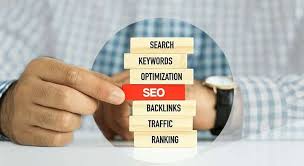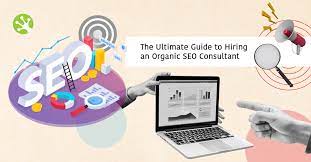The Power of SEO Web Marketing
In today’s digital age, having a strong online presence is crucial for businesses looking to reach their target audience. Search Engine Optimization (SEO) web marketing plays a pivotal role in enhancing visibility and driving organic traffic to websites. Let’s delve into the world of SEO and explore how it can transform your online marketing strategy.
What is SEO Web Marketing?
SEO web marketing involves optimizing your website to rank higher in search engine results pages (SERPs) for relevant keywords and phrases. By improving your site’s visibility on search engines like Google, you can attract more qualified leads and potential customers.
The Benefits of SEO Web Marketing
Increased Visibility: By implementing SEO best practices, your website is more likely to appear at the top of search results, making it easier for users to find you.
Targeted Traffic: SEO helps attract users who are actively searching for products or services related to your business, increasing the likelihood of conversion.
Enhanced User Experience: Optimizing your site for search engines also improves the overall user experience, leading to higher engagement and lower bounce rates.
Key Strategies for Effective SEO Web Marketing
To make the most of SEO web marketing, consider implementing the following strategies:
- Keyword Research: Identify relevant keywords that align with your business offerings and target audience.
- On-Page Optimization: Optimise meta tags, headings, content, and images on your website for improved search engine visibility.
- Quality Content: Create high-quality, informative content that resonates with your audience and encourages engagement.
- Link Building: Build backlinks from reputable sites to establish credibility and improve search rankings.
In Conclusion
Incorporating SEO web marketing into your digital strategy can significantly impact your online presence and drive sustainable growth. By focusing on best practices and staying updated on industry trends, you can harness the power of SEO to expand your reach and connect with a broader audience.
Understanding SEO Web Marketing: Key FAQs for Businesses
- What is SEO and how does it impact web marketing?
- Why is SEO important for businesses in their digital marketing strategy?
- What are the key components of effective SEO web marketing?
- How can businesses measure the success of their SEO efforts in web marketing?
- What are common challenges faced by businesses when implementing SEO web marketing strategies?
What is SEO and how does it impact web marketing?
Search Engine Optimization (SEO) is a fundamental aspect of web marketing that focuses on improving a website’s visibility and ranking on search engine results pages. By strategically incorporating relevant keywords, optimizing meta tags, enhancing user experience, and building quality backlinks, SEO aims to increase organic traffic to a website. The impact of SEO on web marketing is profound as it not only helps businesses attract targeted visitors but also enhances brand credibility and authority in the digital landscape. A well-executed SEO strategy can significantly boost a website’s online presence, drive conversions, and ultimately contribute to the overall success of a digital marketing campaign.
Why is SEO important for businesses in their digital marketing strategy?
Search Engine Optimization (SEO) plays a vital role in businesses’ digital marketing strategies due to its ability to enhance online visibility and drive organic traffic. By optimising their websites for search engines, businesses can improve their chances of appearing at the top of search results, making it easier for potential customers to find them. SEO not only increases visibility but also helps target specific audiences actively searching for products or services offered by the business. Ultimately, incorporating SEO into digital marketing strategies can lead to improved brand awareness, higher website traffic, and increased conversions, making it a fundamental component for businesses looking to succeed in the competitive online landscape.
What are the key components of effective SEO web marketing?
When considering the key components of effective SEO web marketing, several crucial elements come into play. Firstly, thorough keyword research is essential to identify relevant terms that resonate with your target audience and align with your business objectives. On-page optimization, including meta tags, headings, and content structure, plays a vital role in enhancing search engine visibility. Quality content creation that addresses user intent and provides value is another cornerstone of successful SEO web marketing. Additionally, building authoritative backlinks from reputable websites and maintaining a user-friendly website design are integral components that contribute to a comprehensive and effective SEO strategy. By integrating these key elements cohesively, businesses can enhance their online presence, attract organic traffic, and ultimately drive meaningful results through SEO web marketing efforts.
How can businesses measure the success of their SEO efforts in web marketing?
Measuring the success of SEO efforts in web marketing is crucial for businesses to track the effectiveness of their strategies and make informed decisions. One common method is through monitoring key performance indicators (KPIs) such as organic traffic, keyword rankings, conversion rates, and bounce rates. By analysing these metrics regularly, businesses can gain valuable insights into the impact of their SEO initiatives on website visibility, user engagement, and ultimately, business growth. Additionally, tools like Google Analytics provide detailed data on user behaviour and site performance, allowing businesses to refine their SEO tactics for optimal results.
What are common challenges faced by businesses when implementing SEO web marketing strategies?
Implementing SEO web marketing strategies can pose several challenges for businesses. One common hurdle is the ever-evolving nature of search engine algorithms, which require continuous adaptation to stay relevant and maintain rankings. Additionally, intense competition in the online space can make it challenging to stand out and capture the attention of target audiences. Balancing technical SEO requirements with compelling content creation can also be a struggle for some businesses, as achieving a harmonious blend is essential for success. Finally, measuring the effectiveness of SEO efforts and attributing ROI accurately can be complex, making it crucial for businesses to have robust analytics and tracking mechanisms in place to evaluate performance accurately.




